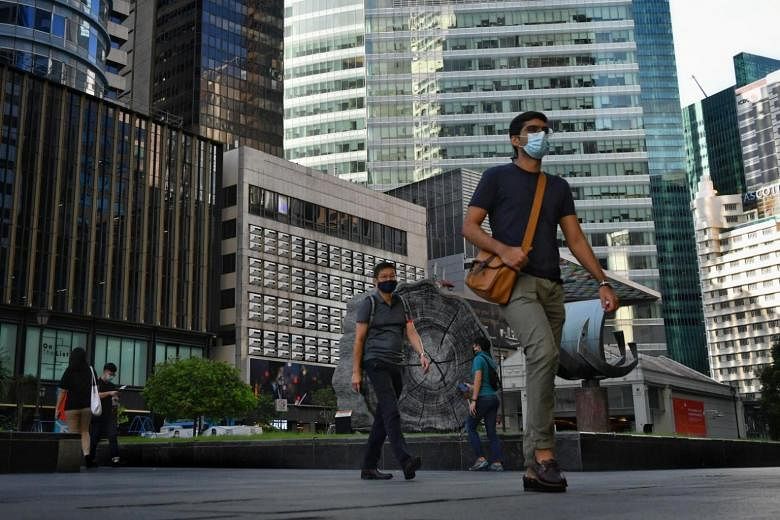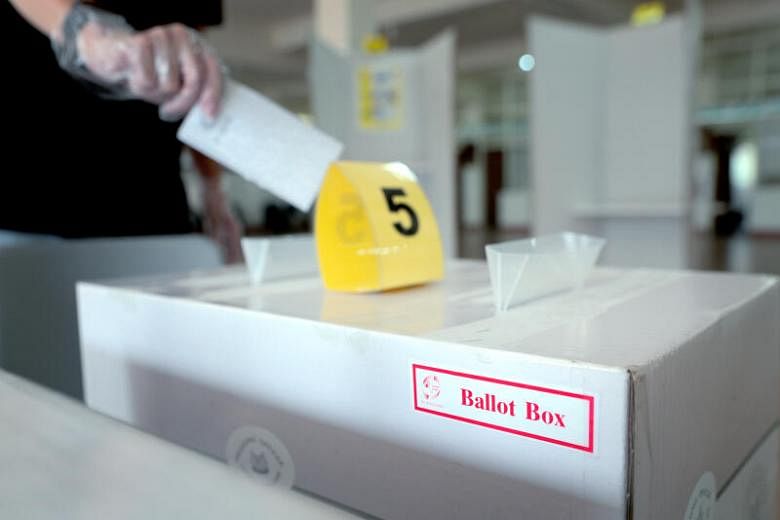Singapore is set for an unprecedented general election on July 10.
Covid-19 has caused tremendous upheaval to the global economy, from bringing air travel to a grinding halt to disrupting supply chains.
The Singapore economy has been hard hit, with more than 100,000 jobs at stake, a looming recession and a contraction that is set to be the worst since independence.
So, it's hardly the rosiest scenario against which to call an election.
Explaining why he decided to do so in a broadcast yesterday, Prime Minister Lee Hsien Loong said Singapore has yet to feel the full economic fallout from Covid-19. The external environment is also uncertain, and surprises may be in store.
His key message: These are challenges which call for a government that is able to respond swiftly and decisively. And Singapore needs a capable government - one with the strong backing of the people - to do what needs to be done and see it through the tumult.
At a time when there has been a flight to leadership globally, observers expect the People's Action Party (PAP) to get the mandate it needs to govern effectively and - in its leaders' words - not just ride through the outbreak, but emerge stronger.
Some - even in opposition circles - appear to have all but conceded that the PAP will romp home to power with resounding support next month.
PAP activists appear quietly confident, and they know the ground they have walked extensively especially since the pandemic began. Old-timers among them say the day an election ends is the day they start to prepare for the next one.
But GE2020's trajectory is far from certain. Elections can be unpredictable events - and issues that crop up in the heat of the campaign have the potential to swing votes either way and cause upsets to the most entrenched of incumbents.
This is why the PAP has never taken elections for granted, even though recent history suggests that polls held in times of crisis, as in November 2001, see a flight to safety. That election saw the PAP returned to power on Nomination Day, and get 75.3 per cent of the votes in contested seats on Polling Day.
Since then, the past three elections - in 2006, 2011 and 2015 - have been robustly contested, and the party that has been governing Singapore for 61 years was returned to power with 66.6 per cent, 60.1 per cent and 69.9 per cent of the votes in the respective years.
Many consider the 2015 result an anomaly, attributing it to events such as the passing of founding prime minister Lee Kuan Yew and the feel-good effect from SG50 celebrations marking the golden jubilee of Singapore's independence.
To its credit, the PAP had also been responsive to discontent over housing and immigration policy, and demonstrated a resolve to address the decline in vote share from the previous election.
Many of its fourth-generation leaders who have helped the party rebuild its support since then are today leading the charge on the campaign trail.
The resounding GE2015 result has not made one of the longest-ruling governing parties content to rest on that record.
In the past five years, issues such as the cost of living and healthcare have been addressed considerably through the Merdeka Generation Package and other schemes.
But other concerns - such as the impact that disruptive technology has had on professional, managerial, executive and technician jobs, and uneasiness over an openness to global talent - have soured the mood in some quarters, especially those who feel they get a raw deal.
-
GE2020: Stay informed with ST's full coverage
-
To help readers stay updated with the latest developments, The Straits Times will be making GE2020 content freely available to all.
"This is an especially important election for Singapore, given the many challenges posed by the pandemic. Voters have an important decision to make," said ST editor Warren Fernandez.
"We want to help make sure they are well informed to make their choice. So, as a public service, we are making our election-related content freely available." Visit the GE microsite for full coverage.
With 16 days to Polling Day, a number of factors could play a role in the outcome of GE2020.
One is the ongoing Covid-19 crisis. While Singapore has seen over 42,000 cases to date - much of it the result of aggressive testing especially in foreign worker dorms - the number of fatalities is low, new community cases have fallen sharply, and a two-month circuit breaker has helped stem the spread of the virus. Significant fiscal injections - totalling almost $100 billion - to save jobs have also kept layoffs low for now.
But opposition politicians have called into question the Government's handling of the pandemic, and look set to do so in the campaign, including criticising the move to call an election as one that puts Singaporeans' health at risk.
PM Lee said yesterday that in deciding to proceed, he was satisfied that voters can vote safely and that political parties can campaign effectively. Door-to-door campaigning is still allowed and while physical rallies cannot be held, there are more opportunities for candidates to speak to voters on television and online.
A second factor is voters' assessment of the contesting parties and their candidates.
The circuit breaker has been a leveller of sorts - the PAP and opposition parties have had to halt walkabouts, including for new candidates keen to introduce themselves.
But many of the parties have been active, going online to make themselves known to voters.
While the Workers' Party and Progress Singapore Party have scaled down the number of seats they plan to contest, it is still likely that all voters will get a chance to cast their ballot on Polling Day, as they did for the first time in 2015.
And some of the candidates - set to be unveiled at a rapid pace on both sides in the days ahead - may gain wider reach in an Internet-reliant campaign.
The third and perhaps most critical factor will be how much voters value the competing calls for support from all sides.
For its part, the PAP is seeking to build partnerships with Singaporeans to help shape and take ownership of policies through the Singapore Together effort.
Its argument is that Singapore has been in a unique position because its people have consistently backed the PAP resoundingly, giving it a supermajority in Parliament that enables it to act decisively.
On their part, the opposition parties seek to tap into the desire among some voters for greater checks and balances - or co-drivers, as opposition veteran Low Thia Khiang once put it - in the system, arguing that only an elected opposition can do so effectively.
Some have called on voters to deny the PAP a two-thirds majority in Parliament, the threshold required to amend the Constitution. Expect the PAP to underline that issues like integrity and capability - and not just numbers - are key when it comes to electing MPs.
Regardless of the outcome of the election, the next Parliament is guaranteed to see a minimum of 12 opposition MPs through the Non-Constituency MP scheme, this time with full voting rights. The gradual increase in the number of such seats over the years has helped address concerns that alternative voices are not represented adequately.
The impact of the crisis brought on by Covid-19 is expected to drag on for some years. GE2020 - how this unprecedented election campaign shapes up as well as its outcome - will also make a critical difference in how Singapore responds to this crisis, and beyond.



